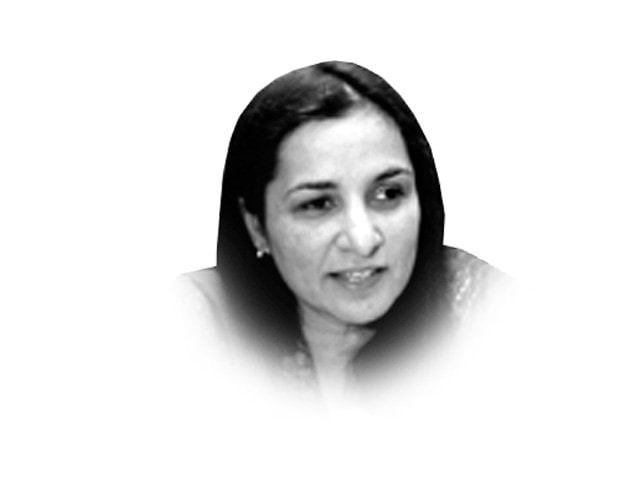Article 6: handle with care
The challenge is to turn this legally correct move of invoking article 6 against Musharraf into a wise one.

The writer is a senior anchor at Capital TV and a fellow at Harvard University Asia Centre. She tweets @NasimZehra
Of course, the government could have categorically stated as its Information Minister Senator Parvez Rashid did on June 9, in my programme, that we will submit “nicely” to the Court that proceeding against the former general was not a priority. What the information minister said reflected one strand of thinking within the party. Earlier in his April 30 interview with me, Mian Nawaz Sharif had said that “I am legally bound to take the case to Court and I will do that. The Court, he said, would decide whether or not Article 6 will apply. Interestingly, in that interview, he disagreed with me that a truth and reconciliation commission would be sufficient to amicably clear up past accounts of blunders. He said, “How would future acts of treason be prevented if no one was tried for treason?”
There are two views in the country. According to one, the country is going through a very difficult period which requires the government’s full concentration on resolving the problems at hand. The other view argues that unless a military ruler is not tried in Court for trashing the Constitution, the road to future martial laws will remain open. Both views have merit. Even the information minister made the argument of prioritising issues rather graphically. He said in my June 9 programme that “if on the one hand a dog is stealing milk, while at the same time my child is drowning, what would I choose? Naturally, I will save my child.”
However, as we have seen that multiple factors, no less the activist judiciary, which also is indirectly an interested party, the PML-N’s own political chanting, egging on the PPP to invoke Article 6 and finally the section of the public opinion calling for former military ruler’s trial did not leave the government the option of pushing the Musharraf case on the back-burner.
Pakistan’s difficult political history, and by extension its socio-economic and ideological dilemmas and difficulties have their roots, to a great extent, in trashing of the Constitution. So, calling for accountability is necessary.
The challenge, however, is to turn this legally correct move into a wise one. Three factors are important. One, the government should pursue it calmly and soberly, not as hounds on a hunting spree. It’s not a time to open a new front; the law must be upheld but sensibly and with humility. Two, this case must not be pursued at the cost of other pressing problems. The public wants the government to resolve the issues ranging from acute crises of internal security to the acute crisis of load-shedding. Neither the country nor its people have the stomach for any witch-hunts or vendetta-prone politics. Three, the government and the media must frame this case, not as a score-settling between the military and the PML-N or the military and Pakistan’s political class, but as legal action against an individual who trashed the Constitution. That the individual, too, will get justice as he deserves according to law, is a point that needs to be reiterated.
Meanwhile, from the army leadership, the maturity that the army chief has shown until now, is expected in the coming months, especially with the government’s decision to take the case to Court. How the army views it, will depend not only on how the government and the media frame it, but also on how the military leadership interprets it for the institution.
As we now wait for the legal curtains to be raised on what can be billed as one of Pakistan’s most historic cases, there will be multiple, and not always comfortable, questions that will be raised. Why not the October 1999 coup? Only because the Supreme Court judges indemnified the actions? The indemnity argument regarding the October 1999 coup is nullified under the Eighteenth Amendment. As the case goes to Court, the many-sided battles, involving multiple actors will expose the contradictions, the grey areas and the indemnities. Some argue that the chief justice himself could be dragged in and those serving as the governors, corps commander and the three chiefs during Musharraf’s time can fall in the collaborators category.
These are all facts, not ones that we should be scared of. The invoking of Article 6, provided it is handled wisely, will go down as another landmark in the maturing of the Pakistani nation.
Published in The Express Tribune, July 1st, 2013.
Like Opinion & Editorial on Facebook, follow @ETOpEd on Twitter to receive all updates on all our daily pieces.













COMMENTS
Comments are moderated and generally will be posted if they are on-topic and not abusive.
For more information, please see our Comments FAQ